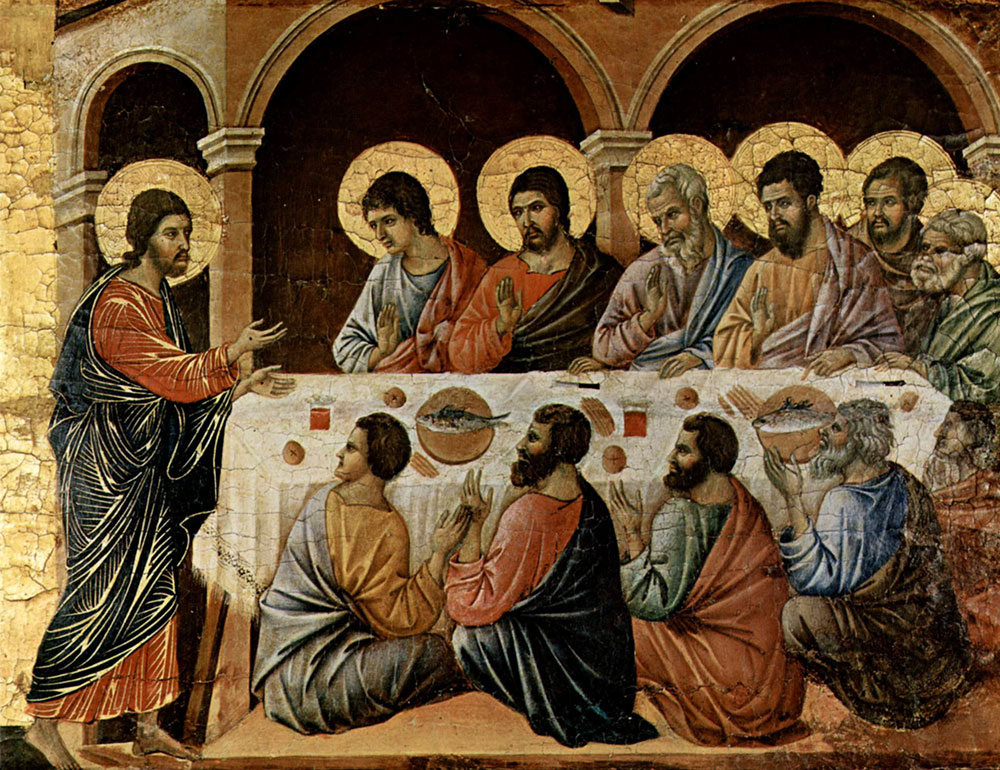Year C, Acts 7:55-60, Psalm 97 (96): 1, 2b. 6, 7c. 9 Rev 22:12-14, 16-17, 20 & John 17:20-26
That they may be one
As we prepare to receive the Holy Spirit next Sunday. Our readings today challenge us to develop an important virtue, which we can also call an invitation. An invitation to “Unity”. Unity has several branches: oneness, care for others, praying for others, being tolerant, and forgiving as quickly as St. Stephen the Martyr. He said, “Lord, do not hold this sin against them…” (Acts 7:60). “To be a Christian means to forgive the inexcusable because God has forgiven the inexcusable in you”.
In the Gospel reading for this Sunday, we are presented with Jesus’ priestly prayer in John 17. Jesus prayed for the unity of believers, just as the Trinity is one, thereby encouraging all believers to share a unified purpose.
Jesus’ prayer for unity in John 17:20-26 is a heartfelt plea for believers to be one, just as He and the Father are one in unity.
He prays:
- For unity among believers (v. 21-23): That they may be one, just as Jesus and the Father are one, so the world may believe in Jesus’ mission.
- For a shared love and glory (v. 24-26): That believers may experience the same love and glory that the Father has for Jesus.
This prayer emphasises the importance of unity, love, and a shared mission among Christians. Sadly, Christians have often struggled to embody this unity, resulting in divisions, denominations, and conflicts throughout history. Nevertheless, numerous Christians and congregations are striving for enhanced unity, collaboration, and understanding, acknowledging that Jesus’ prayer serves as a call to:
- Ecumenism: Cooperation and discussion among various Christian denominations.
- Love and inclusivity: Cherishing and accepting one another regardless of differences. Despite these differences, the Bible serves as our common ground, and mutual respect is essential.
- Common mission: Collaborating to share the Gospel and serve humanity. Although much remains to be accomplished, Jesus’ prayer for unity serves as a strong reminder of the significance of love and unity among believers.
So, apart from encouraging unity this Sunday, we are warned of the dangers of disunity, which led to the stoning to death of St. Stephen in the first reading. What led to this? It was simply because of the argument over doctrine and faith. They couldn’t bear to listen to the teachings of Stephen as they “stopped their ears and rushed together at him” (Acts 7:57).
To this day, Christians continue to argue over doctrinal issues. Today, there are tens of thousands of Christian denominations worldwide, with some sources suggesting figures ranging from 30,000 to 45,000 or more denominations, reflecting diverse interpretations and practices within Christianity. But to the glory of God, you do not belong to a denomination; you belong to the authentic Christian church founded by Jesus Christ, with a direct line of apostolic succession.
We must persist in prayer and action to eliminate the scandal of disunity within Christianity. To achieve this, we require love and the Holy Spirit. With these, we can eradicate envy – the feeling of discontent regarding another’s possessions and gifts, such as healing. We should celebrate each other instead of trying to overshadow one another. Envy led to Stephen’s death because they couldn’t accept the miracles and teachings he brought. In 1 Corinthians 12:28-31, St. Paul teaches on various gifts of the Holy Spirit, and we can seek one of them.
Happy Sunday and Happy New Month of June. Every blessing for June.







Leave a Reply